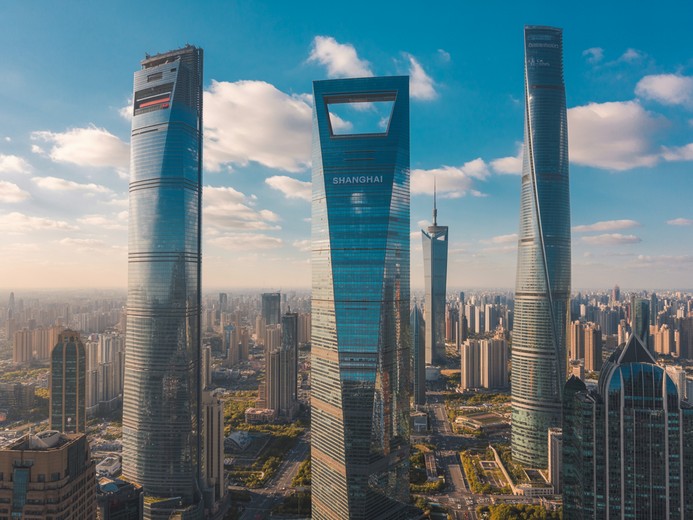
The tariff war began in 2025 with the United States announcing on April 2nd the imposition of “reciprocal tariffs” on all trade partners, with a 34% tariff rate specifically on China, bringing the cumulative additional tariff rate to 54%. Just a week later, on April 9th, the U.S. implemented an 84% “reciprocal tariff” on China, which, when combined with existing tariffs, resulted in a total tariff rate of 104%. In response, China imposed an additional 50% retaliatory tariff on U.S. goods, bringing its cumulative tariff rate to 84%.
The Impact of Tariff Wars on Global Trade and Investment Strategies
The escalating trade tensions between the United States and China have sent shockwaves through global markets, forcing companies to reconsider their investment strategies and supply chain operations in China. While large corporations have been vocal about their plans to scale back operations in China, many global small and medium-sized businesses (SMEs) are taking a different stance, recognizing the irreplaceable advantages that China offers.
These advantages include but not limited to Comprehensive Supply Chains and factories, Robust logistics, Great infrastructure, Talent Pool and Customer Support.

However, those positive companies, while continuing to invest in China, may have already taken or will take the following measures to mitigate risks.
Supply Chain Diversification: Some are exploring “China + 1” strategies, maintaining a presence in China while also establishing operations in other countries to hedge against risks.
Innovation and Value Addition: Investing in R&D to develop higher-value products that are less sensitive to tariff changes. This helps companies move up the value chain and reduce their vulnerability to tariff fluctuations.
Market Diversification: Expanding into new markets to reduce dependency on any single market, particularly the U.S. This helps companies build more resilient business models that are less affected by trade disputes between any two countries.
Cost Control and Compliance: Optimizing internal processes to manage costs and ensuring compliance to avoid additional tariffs. This involves meticulous supply chain management and documentation to ensure that products qualify for the best possible tariff rates.

This report explores how these global companies are navigating the complexities of the tariff war while maintaining their recruitment and investment activities in China, with a particular focus on the role of specialized recruitment agencies like SunTzu Recruit in facilitating these operations.

Diverse Responses to Tariff Uncertainty
Natalie, the HR manager at a U.S.-based pet supply company, had planned to set up a factory in Shenzhen, China, to produce pet products for the American market. The company aimed to hire around 30 staff, including a finance director, to manage operations. However, the escalating tariff war introduced significant uncertainty.
“On the eve of our planned expansion, the U.S. announced its intention to impose a 34% ‘reciprocal tariff’ on Chinese goods, which was later increased to 84%, making our initial plans economically unsustainable,” Natalie explained to China recruitment agency SunTzu Recruit. “Our CEO decided to indefinitely postpone the recruitment and factory setup plans due to the unpredictability of the trade environment.”
This decision reflects a cautious approach adopted by many companies facing significant trade uncertainty. The Trump administration’s cancellation of “Section 321 of the US Tariff Act” further complicated matters, creating additional uncertainty that led Natalie’s company to abandon its expansion plans.

Fendi, CEO of a U.S. tech start-up, has a contrasting view. Her company designs and manufactures smart home appliances, with production outsourced to China. Despite the tariff hikes, Fendi remains committed to her China strategy.
“China’s manufacturing capabilities are at least a decade ahead of those in the U.S. in our industry,” Fendi stated. “We’ve implemented risk management measures internally to mitigate the impact of tariffs. The idea of moving production elsewhere, especially during a global health crisis, is not feasible for us.”
Fendi’s company had been in discussions with Guangzhou headhunter firm SunTzu Recruit regarding recruitment for Production Engineer positions in Shenzhen when the tariff announcements were made. When asked if she would consider canceling the recruitment, Fendi was unequivocal: she would not stop the company’s expansion plans in China. Her company had already discussed the tariff implications internally and implemented risk isolation measures. She expressed confidence that a solution would eventually be found to the U.S.-China trade issues.

Jose, CEO of CECOTEC, a Spanish tech company, is also doubling down on China. With a 70% market share in Spain, CECOTEC aims to expand globally, leveraging Chinese manufacturing to reduce costs.
“China is crucial for our global expansion,” Jose said at a recruitment needs discussion with Shenzhen headhunting firm SunTzu Recruit. “We plan to significantly increase our investment in China, aiming to have a team of several hundred employees in the coming years. The tariff war might pose challenges, but it doesn’t change our long-term commitment to China.”
Jose’s perspective highlights how some European companies see the tariff war not as an obstacle but as an opportunity to strengthen their position in the Chinese market. His comments echo broader sentiments among some European business leaders who believe that the trade tensions might actually benefit their companies by creating openings in the Chinese market that they can exploit.

Antonio, procurement director at a European building materials company, echoed similar sentiments. His company sources over €10 million worth of products from China annually, with no viable alternatives due to the complexity and quality requirements of their products.
“The tariff war hasn’t altered our procurement strategy,” Antonio noted. “Our products are too complex and require high precision, which we can only find in China. The relationship with our Chinese suppliers is stable and will remain so for the foreseeable future.” Antonio is seeking a Supply Chain Management Engineer in Suzhou through SunTzu Recruit.
Antonio’s comments underscore how some companies have no choice but to maintain their Chinese supply chains due to the unique capabilities offered by Chinese manufacturers. This is particularly true for industries where quality, precision, and specific manufacturing processes are critical.

DE, a U.S.-based Tier-1 auto parts supplier, has a unique challenge. While they have a large manufacturing facility in Mexico, their design team in China creates molds for auto parts, which are then produced by Chinese suppliers.
“Despite the tariff threats, we can’t find suitable alternatives to China for our mold design and production needs,” said Laurence, DE’s China director. “Mexico offers lower labor costs, but the quality and expertise in complex mold making are lacking compared to China. We’re closely monitoring the situation but see no immediate changes to our China operations.” SunTzu Recruit recruited Tooling Design Engineer for DE since the first setting up its office in Dongguan, China. This kind of cooperation has lasted for years.
Laurence’s comments highlight a common dilemma faced by many multinational companies: while tariffs might make it more expensive to import from China, the country’s unmatched manufacturing capabilities mean that alternatives are either unavailable or significantly more expensive. This creates a situation where companies must carefully balance cost considerations with the need to maintain quality and reliability in their supply chains.

Tariff war haze ushered in dawn
However, on May 12th, 2025, the “U.S.-China Joint Statement on Economic and Trade Issues in Geneva” was released, outlining that both countries agreed to reduce 91% of their tariffs on each other’s goods and to postpone 24% of the tariffs, resulting in a cumulative reduction of 115%.
The Role of Recruitment Agencies in Navigating Trade Uncertainty
In this complex landscape, recruitment agencies like SunTzu Recruit play a pivotal role. Specializing in sectors such as semiconductor, electronics, communications, home appliances, chemical engineering, and industrial automation, SunTzu Recruit as one of the leading China recruitment agencies, has been instrumental in helping multinational companies find the right talent in China.

SunTzu Recruit‘s expertise lies in understanding both international requirements and the local market, making it a bridge between global companies and Chinese talent. The company has a long track record of successful placements for multinational companies, demonstrating its deep understanding of both the global business environment and the Chinese market.
The tariff war has created a complex and uncertain environment for global companies operating in China. However, for many companies, the benefits of maintaining operations in China outweigh the challenges posed by tariffs and trade uncertainty. China recruitment agencies like SunTzu Recruit play a crucial role in helping these companies navigate this complex landscape, providing specialized expertise and local market knowledge that enable successful recruitment and expansion in China.

SunTzu Recruit‘s long track record of successful placements for multinational companies demonstrates its deep understanding of both global business requirements and the Chinese market. As companies continue to adapt to the evolving trade landscape, partnerships with specialized recruitment agencies like SunTzu Recruit can provide the bridge needed to successfully navigate this complex environment and achieve long-term success in China.

Comments are closed